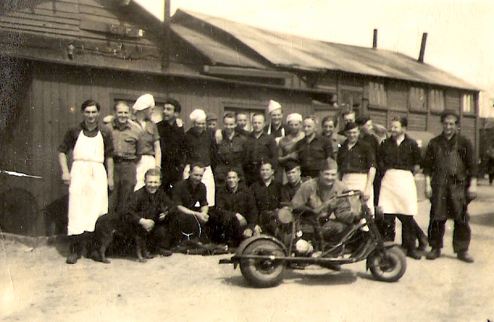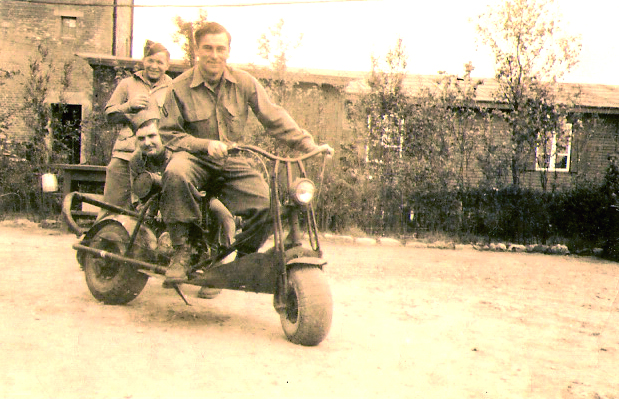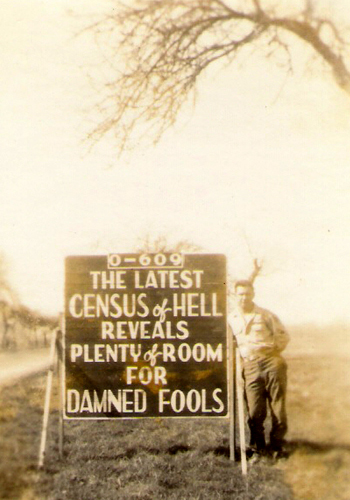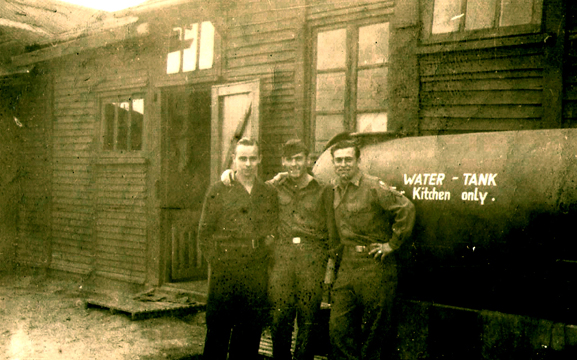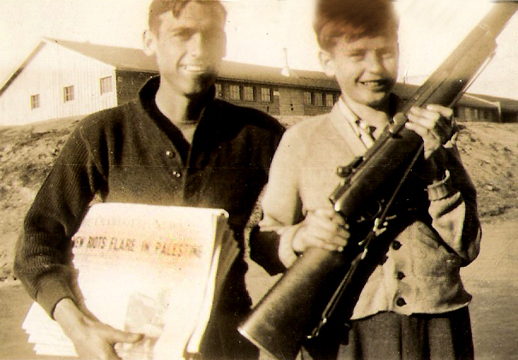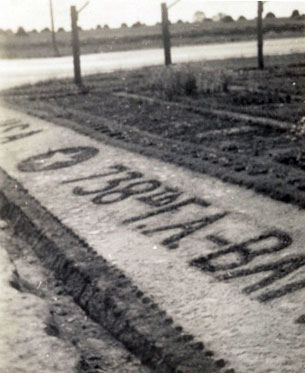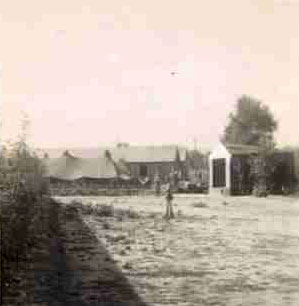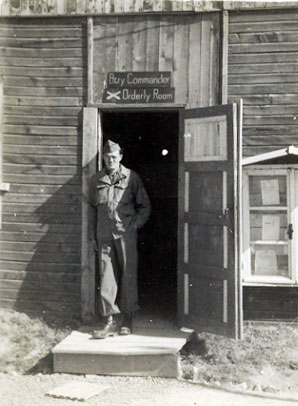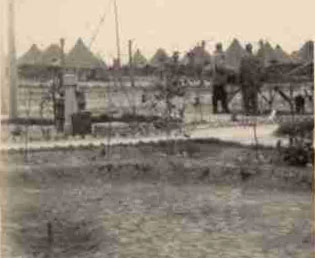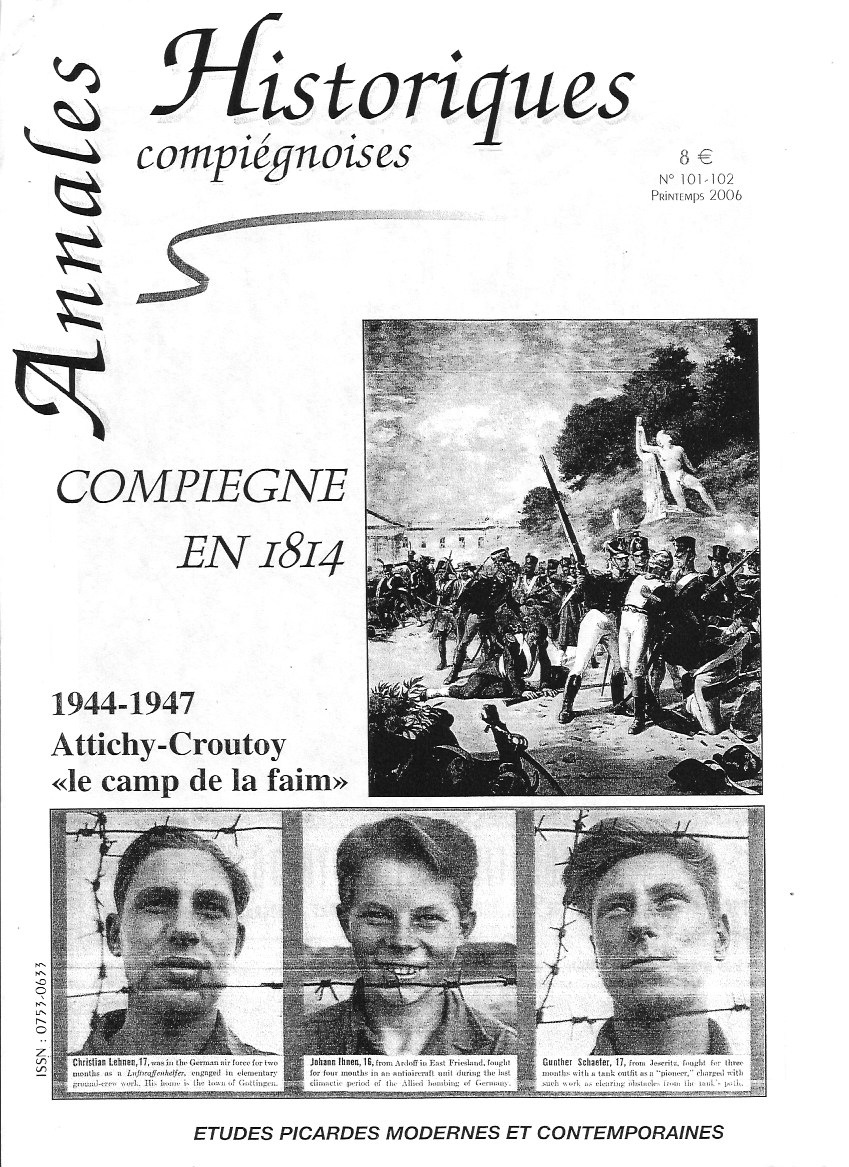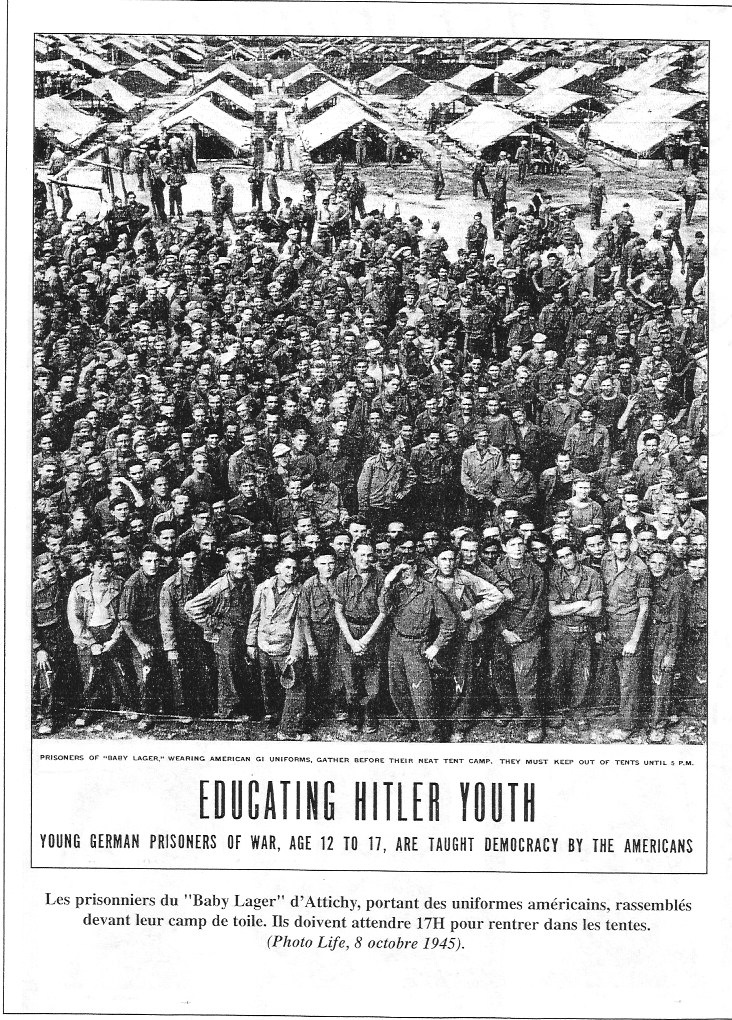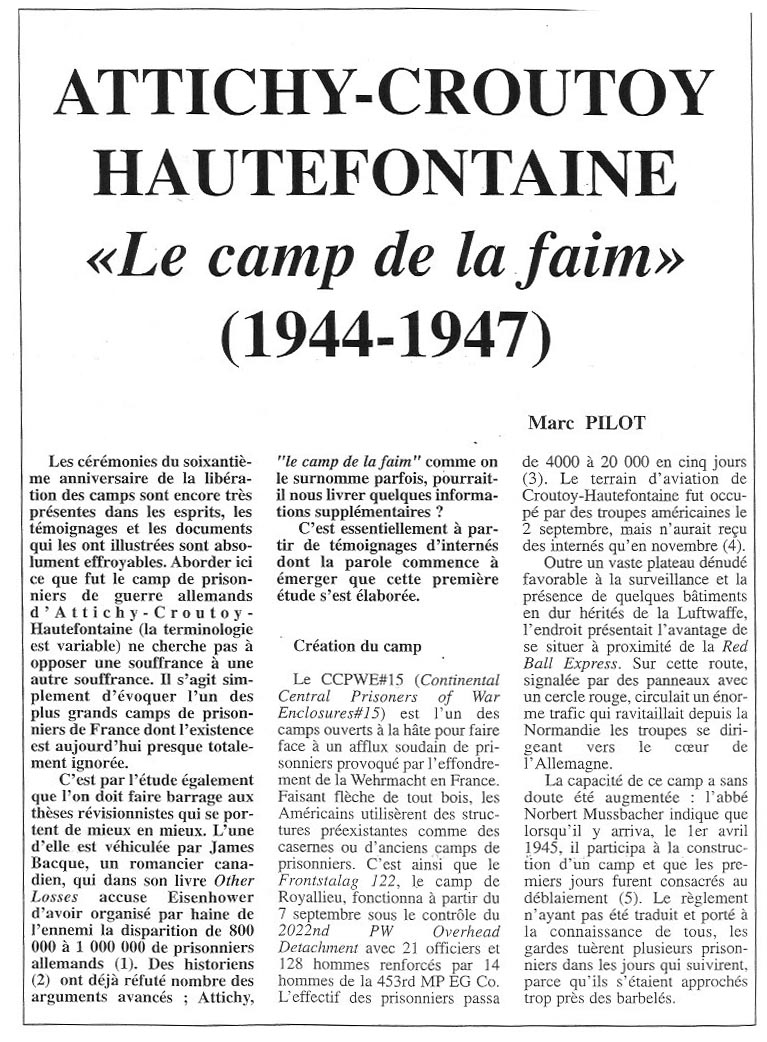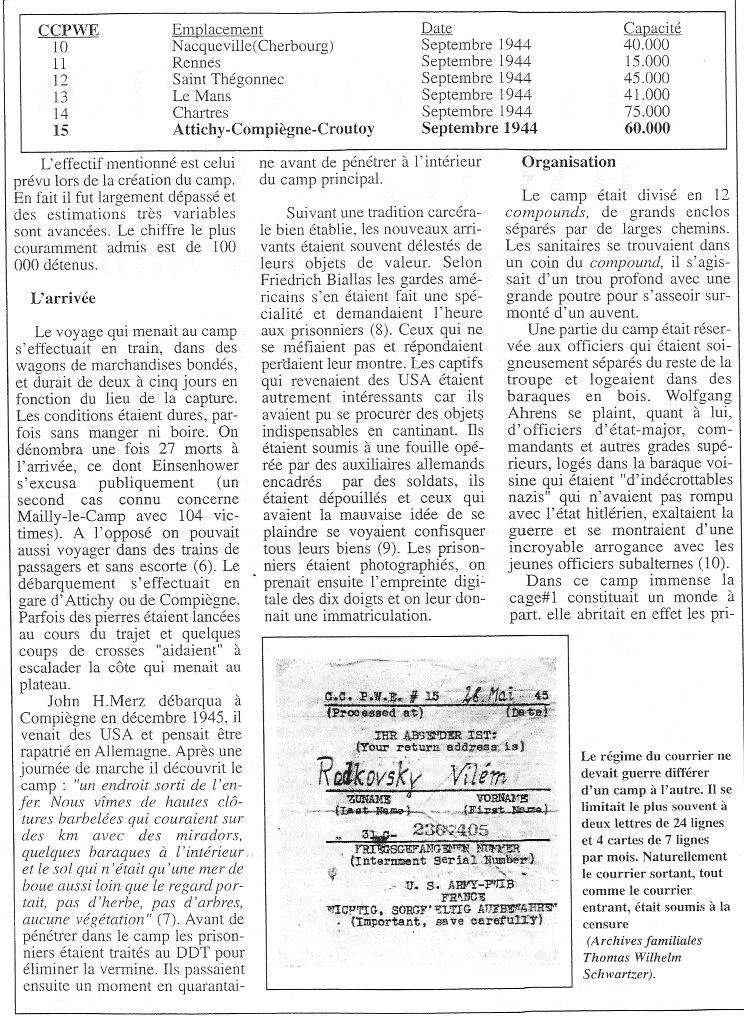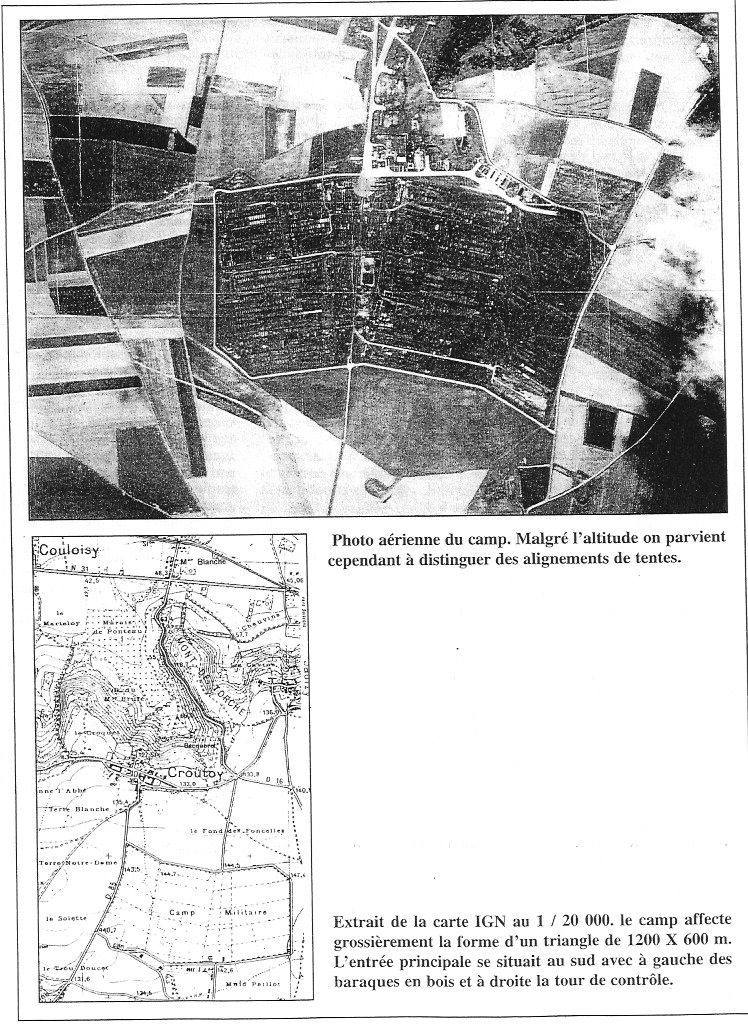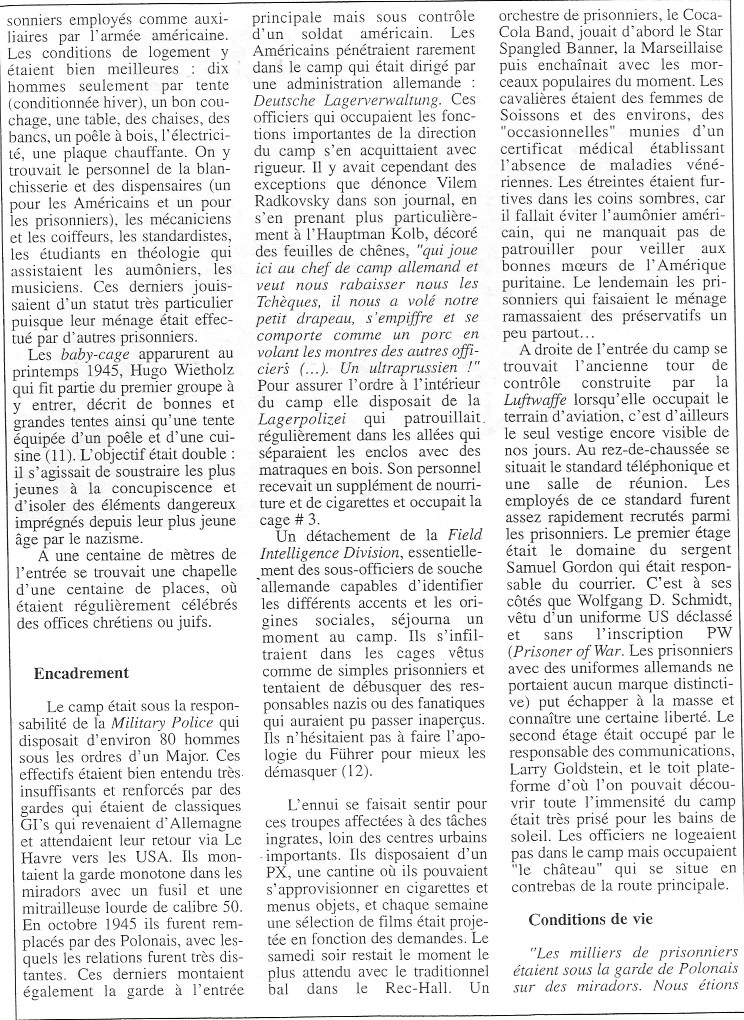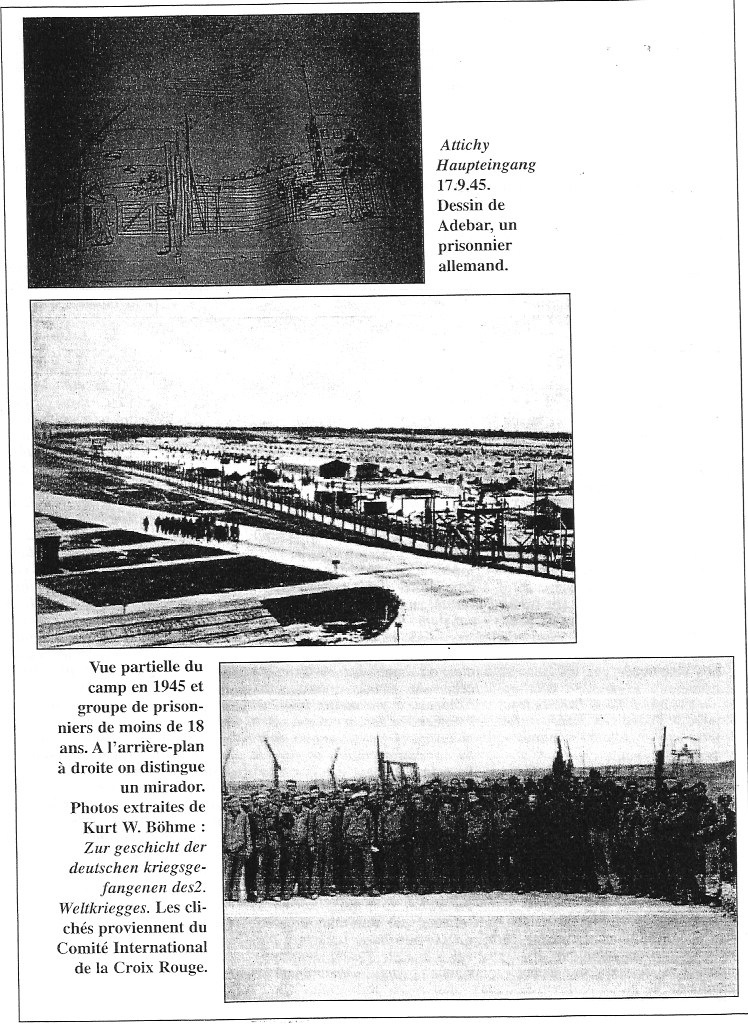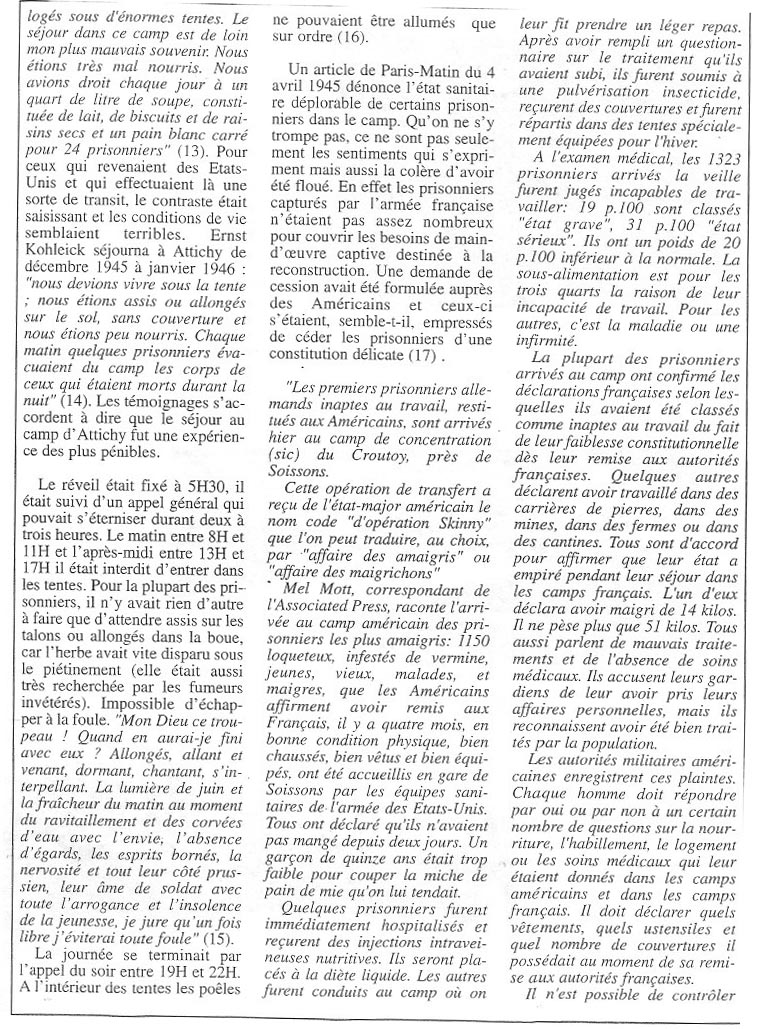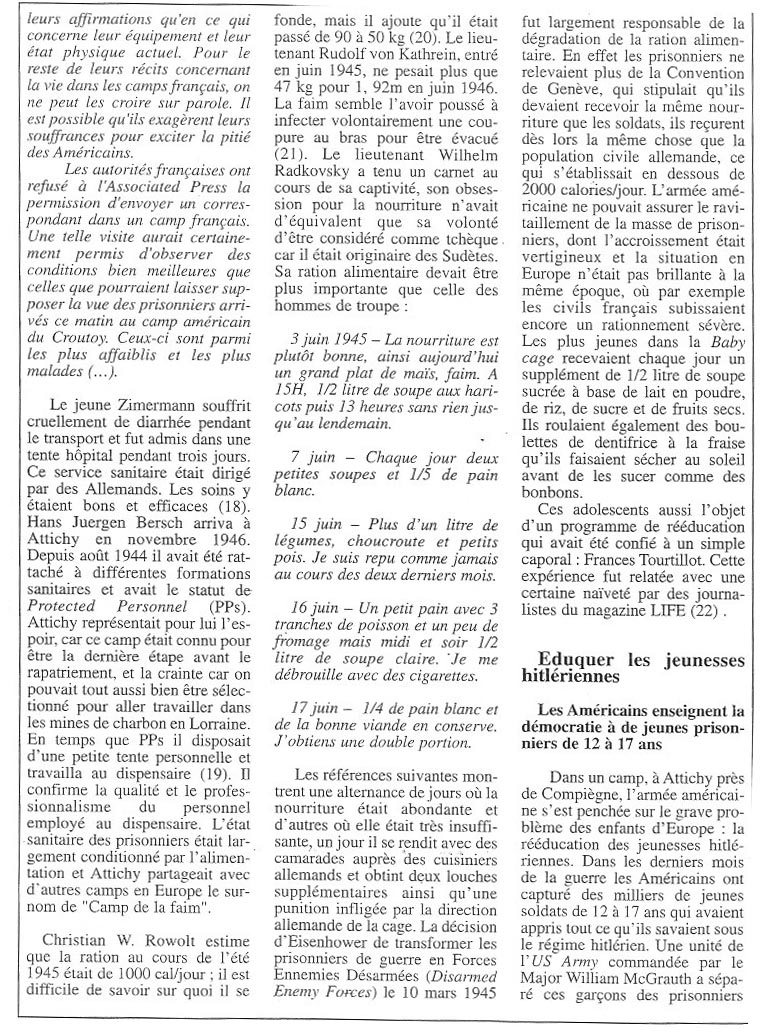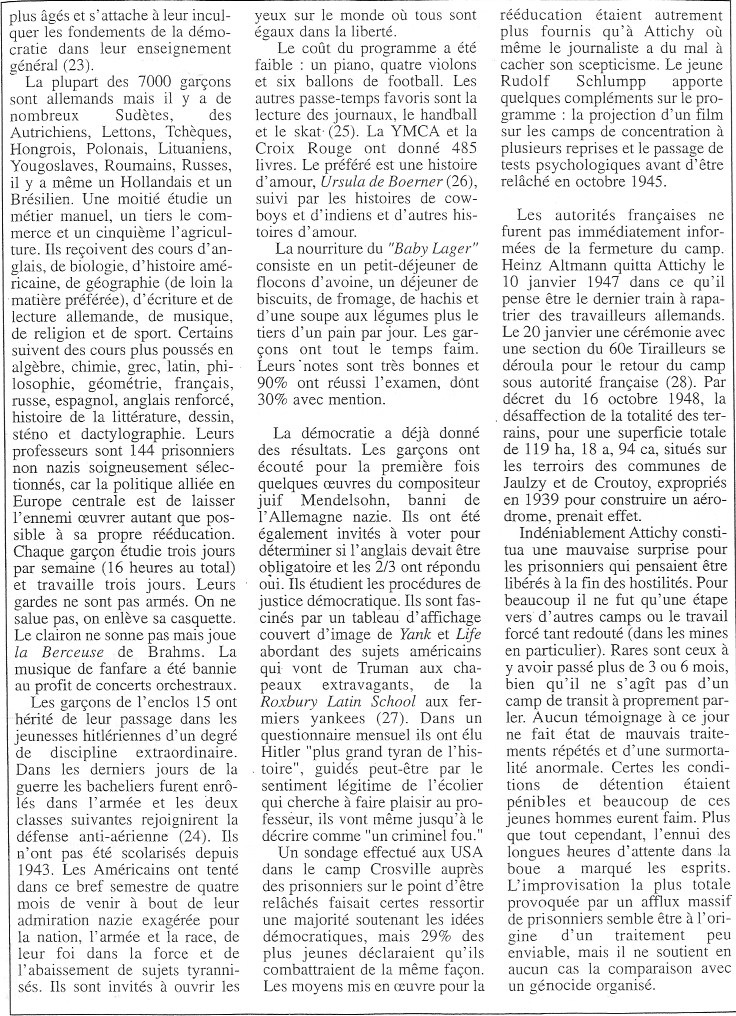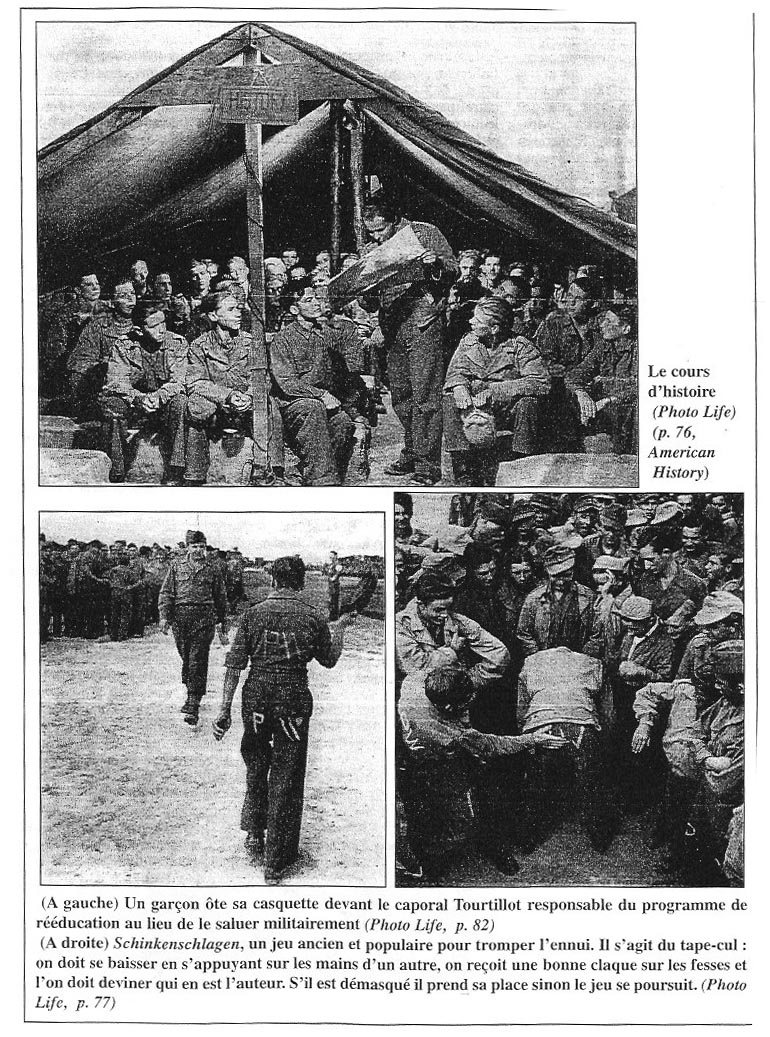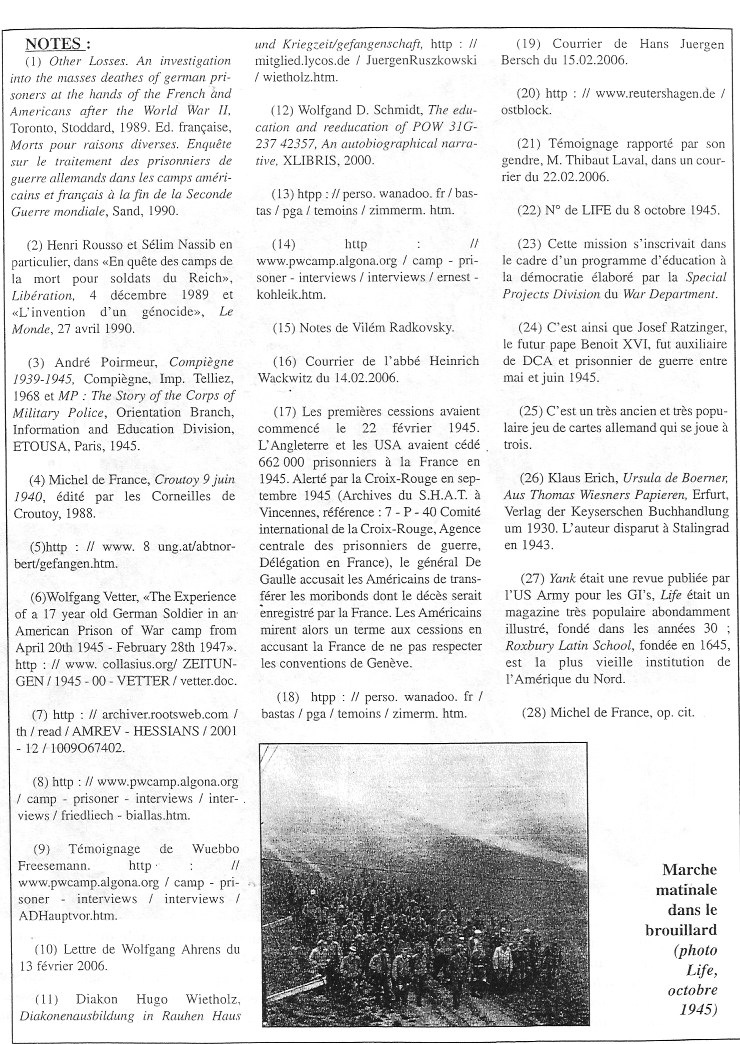Attichy was a German POW camp. The Americans used to bus the locals in for dancing. One French girl met a GI and here I am. I was born on the farm in '48 about 5 miles from the camp in Chelles. My father passed away and here are some of his pictures. A lot are of him and his buddies. Some have comments on the backs but most do not. Jack / jumpin rainman
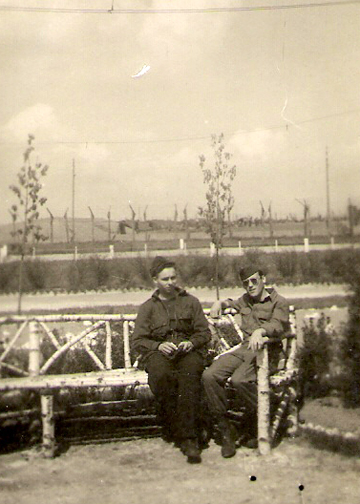
My father with what he describes in another picture of the head German cook.
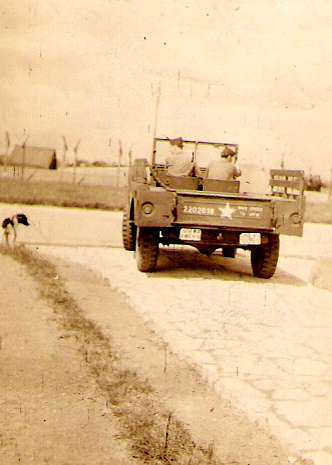
The camp is in the background. My father did not know where this picture was taken.
8/14/05 Hi Olga,
My father was a soldier at
the camp. My father married a local French girl, my mother around 1948. He
was at the camp around 1946-47. My father served in the military until 1966.
We spent the majority of that time in Europe. My mother tells me that on certain
weekends the GI's would truck the locals in for dancing and food. That is where
my mother and father met. He was welcomed by my mother's family which was quite
large. I was born in Chelles in 1948 near Crotoy and Attichy. Growing up, my
father would point out where the camp was. I'll send you the piks once I scan
them. The most interesting one is on the German pow's kitchen crew in front
of the kitchen which consist of about 35 people. Jack
Saw your page on line while researching CCPWE Camp #15 near Attichy, France. I came across several pictures from a member of the 738thField Artillery Battalion who was apparently stationed there in August of 1945. I am happy to share the photos.
Andrew Reiking reinking@madison.k12.il.us
Sep 9, 2014
Hi there,
I am a German historian who does interviews with veterans of WW2. I just talked to a man who spent some time in the POW camp Attichy. I translated the relevant information for you (see below) which you are free to use.
But I also have a question: Do you have a good picture of the POW camp Attichy in high quality which I could use to illustrate my interview? [Olga's note: Anyone who has photos, please reply directory to P. Bellaire.]
Thanks & all the best
P. Bellaire pbdaten@gmx.de
"When we arrived in Attichy in March 1945 we were brought into an empty sports hall or something like this which was the dining hall. On the very first day we got pea soup from the Americans which was really good. Anyway the time we spent in Attichy was not easy for us, for the guards were Polish. In the evening they were totally drunk and shot senseless around, also in our tents. This caused injured and also dead comrades. Food was also rather bad. When food was brought in big boxes we pushed on them to hear the sound. When it sounded dull we always hoped that the soup was a little bit thicker than the thin soup we got normally. Beginning with the total capitulation of Germany on the 8th of May 1945, we got a reduced ration of food – only 1,000 calories a day. We really had to starve. Our tents stood on the soil so we tried to make it comfortable by using the mush cartons of the food supply. A comrade and me were treated as „fugitives“. We tried to escape in the days before we were brought to Attichy. That's why we were locked up into horse boxes for fourteen days in solitary confinement only. During this time we only got water and bread."
Neuber was released in January 1946. After the war, he studied pharmacy and worked for the German army. He still lives near Cologne.
Hi Olga,
I came across your nice web pages concerning post WWII Displaced Persons. When I came upon your "DP Camps in FRANCE" page, I was wondering why the Attichy Camp in Picardie, France was not mentioned. Attichy was a post WWII DP camp that was basically for Germans. It is described in the following book:
The Education and Reeducation of POW 31G-23742357 by Wolfgang D. Schmidt. Hardcover - 312 pages 1 edition (March 26, 2001)
Cheers from southern France, Ralph SOBEK / France
7/16/06 Hello
Very kind of you to post a message at this man intention. I just want to be in touch with Jack and to ask if i could use his pictures. My article contain 11 pages and try to answer to James Baques thesis. I used some german POW account an a Life magazine issue. Since this time, I found a lot of new information about this camp completly outside of our collective memory. A national French newspaper "Le Parisen" published an article on my work and I hope to get more local account from civilians leaving at this moment around the camp. Please let me know your postal adress and I will send you a copy. I have to meet some prisoners on September 10th and I think that I will publish a second part next year.
Best Regards, Marc Pilot, pilot80@free.fr
(Jan. 2019) Sorry Marc that it took so long to publish your article. It was buried and I just found it again.
Enclosed is cover and 11 text pages of Marc's article in French -- Click on each to download jpg to your desktop to read.
